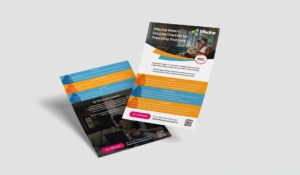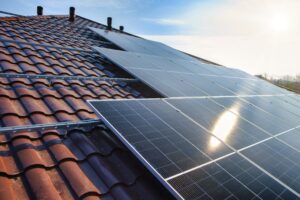The UK government laid out the Energy Company Obligation (ECO) scheme in 2013 which aimed to deliver energy efficiency methods to millions of homes around the nation.
Besides the original scheme, there are also several initiatives to further promote energy efficiency and reduce bill costs. One of these initiatives is the ECO+ scheme, which was announced in May 2023.
If you’re interested in finding out more about the ECO+ scheme and how it can benefit your household, this guide will have you covered with all the information you’re looking for. So without further ado, let’s dive right in!
What Is the ECO+ Scheme?
The Energy Company Obligation Plus, also known as the ECO+ scheme, is a nationwide scheme that aims at helping eligible households improve their energy efficiency through funding the installation of necessary insulation methods.
Consultations over the legalisation of the scheme started in late 2022 by Grant Shapps, the Business and Energy Secretary, and the scheme was launched in April 2023 under the name of the “Great British Insulation Scheme” or “GBIS”.
The programme is administered by the government through Ofgem (the Office of Gas and Electricity Markets), but the supplier companies will control various aspects of the funding process for insulation installation.
The programme is expected to stay in action for three years, ending in March 2026, and is funded mainly by energy suppliers, with an allocated budget of around £1 billion. As of late 2023, the ECO+ scheme covers households in England, Wales, and Scotland.
Are All Energy Suppliers Obligated to Contribute to the ECO+ Scheme?
According to the government’s website, any energy supplier that covers over 150,000 households will have to contribute to the ECO+ funding, and households can get insulation installed fully or partially subsidised. This includes energy companies like:
- British Gas
- E.ON UK
- EDF Energy
- OVO Energy
- Scottish Power
- SSE
The energy carriers will not be doing the insulation installations themselves, but will instead be obligated to provide funding for eligible households to get the insulations done through third-party insulation installers.
What Are the Differences Between ECO+ Scheme and Great British Insulation Scheme?
The ECO+ scheme and the Great British Insulation Scheme (GBIS) are practically the same thing, as they both follow the same guidelines and regulations regarding eligibility, funding, etc. That being said, the GBIS/ECO+ is different from the original ECO scheme in various ways.
The ECO+ scheme is expanding eligibility to include more households, making energy efficiency measures more accessible to a wider range of vulnerable populations, such as low-income households and relatively old houses with poor insulation.
According to the government, this will allow up to 300,000 more houses to benefit from the funding and improve the energy efficiency of their homes.
What Are the Advantages of the ECO+ Scheme?
The ECO+ offers a number of advantages to those who are eligible for the scheme. These include the following:
- Helps You Save Money in Various Ways: Besides saving you the costs of funding the insulations out of your own pocket, the improved energy efficiency will help you save anywhere between £300 to £400 in annual energy bills, according to government estimates.
- Makes Your Home More Comfortable: Insulation can help you keep your home warm in the winter and cool in the summer by maintaining indoor temperature stable, regardless of the temperature outside.
- Reduces Carbon Footprint: With better energy efficiency, you’ll use less energy to keep your indoor heating and cooling stable, which improves sustainability.
- Increases Your Property Resale Value: Improving your EPC rating is one of the best ways to raise the value of your property and make it more lucrative for buyers, as you’ll save them the time and hassle involved in insulating the house themselves.
How to Qualify for the ECO+ Scheme?
The ECO+ scheme has a variety of eligibility criteria and levels of support, depending on your income and house condition. Here’s a quick look at each one of them:
EPC Rating
The primary aspect of becoming eligible for the ECO+ scheme is living in a household with a relatively low Energy Performance Certificate (EPC) rating, which ranges from D or lower.
You can use this government tool to check your EPC rating by entering your certificate number, address, or postcode
Council Tax Bands
Properties that fall within a certain council tax band might be eligible to benefit from the ECO+ insulation funding. However, these tax bands vary from one country to another, so here’s a quick look at the bands in each respective region:
| Country | Eligible Tax Band |
| England | A to D |
| Scotland | A to E |
| Wales | A to E |
Low-Income Eligibility
In addition to property EPC rating and tax bands, people who receive low-income benefits will also be eligible for funding through the ECO+ scheme. This includes one or more of the following benefits:
- Income-related benefits, like Income Support, Income-related Employment and Support Allowance, and Income-based Jobseeker’s Allowance
- Pension-related benefits like Pension Guarantee Credit and Pension Credit Saving Credit
- Other Mean-tested benefits and credits like Housing Benefits, Child Benefits, Universal Credits, and Working Tax Credits.
What Kind of Insulations Does the ECO+ Scheme Cover?
There are various types of insulations that the ECO+/GBIS can cover. One thing you should know here is that the scheme covers only one of the following options, typically the most necessary one.
Loft Insulation
This is the most common form of insulation that the ECO+ scheme covers, as it offers an energy efficiency pump of up to 25% or around £580 in annual energy bills.
It’s also fairly affordable, compared to other techniques, costing anywhere around £900, which makes it easier to cover by energy suppliers.
This method improves energy efficiency by adding insulation material to the loft space in houses, preventing heat from escaping.
Cavity Wall Insulation
As the name suggests, this method works by injecting the gaps and cavities between the inner and outer walls of a house with a liquid insulator that hardens with time or by installing slabs and rolls in the space to seal it properly.
Solid Wall Insulation
If you live in a relatively old house that doesn’t have a cavity between the inner and outer walls, you’ll typically need this type of insulation.
In this method, you apply the insulation on both sides of the solid wall. Unfortunately, this one is quite pricey in comparison, so most households typically need to contribute partially to the funds necessary for the installation alongside the ECO+ share.
Other Types of Insulation
While the previous techniques are the most common ones, the ECO+ also supports other insulation measures, including:
- Room in roof Insulation
- Solid floor insulation
- Under-floor Insulation
- Pitched roof Insulation
- Park home insulation
- Secondary heating controls
Can You Combine ECO+ with Other Energy Funding Schemes?
The short answer here is yes but with a simple catch, as it is important to note that there are restrictions on how you can combine different government funding schemes.
Technically speaking, you can benefit from the ECO+ scheme while staying eligible for other energy funding schemes. These include:
- ECO4
- Boiler Upgrade Scheme
- Home Upgrade Grant
- Warm Home Discount
- Social Housing Decarbonisation Fund
However, you can’t blend the funding of these programs with ECO+ at the same time. In other words, even if you qualify for multiple schemes, you’ll need to have these installations or funds fulfilled either before or after you start benefiting from the ECO+.
What to Do If You Don’t Qualify for the ECO+ Scheme?
If you don’t qualify for the ECO+, there are still a few things you can do to insulate your home and save money on your energy bills. Here’s a quick look at some of them.
Get in Touch with your Local Authority
Contact your local authority to check if you may qualify for the GBIS Flex programme. The GBIS Flex referral programme has a wider range of eligibility requirements than the main ECO+/GBIS scheme.
Check Other Government Energy Efficiency Schemes
There are a number of other government schemes available to help people insulate their homes and save money on energy bills.
Each scheme has its own eligibility criteria, so it’s worth checking to see if you qualify for any of them. These include options like the previously mentioned Boiler Upgrade Scheme and Home Upgrade Grant.
Check with Insulation Installers
Contact energy suppliers and insulation installers to inquire about discounts and low-rate quotes.
Some installers offer highly competitive packages for their offers, which can help you save as much as possible while installing them yourself. Click here to get a quick quote for various types of insulations from Effective Home.
Wrapping Up
The ECO+ Scheme, currently known as the Great British Insulation Scheme or GBIS, can potentially help thousands of households improve their energy efficiency and reduce their annual energy bills by a significant sum.
If you’re looking for a reliable installer to carry out insulations under the ECO+ scheme, don’t hesitate to contact Effective Home to find out more about your eligibility for the scheme and how much you can save.



